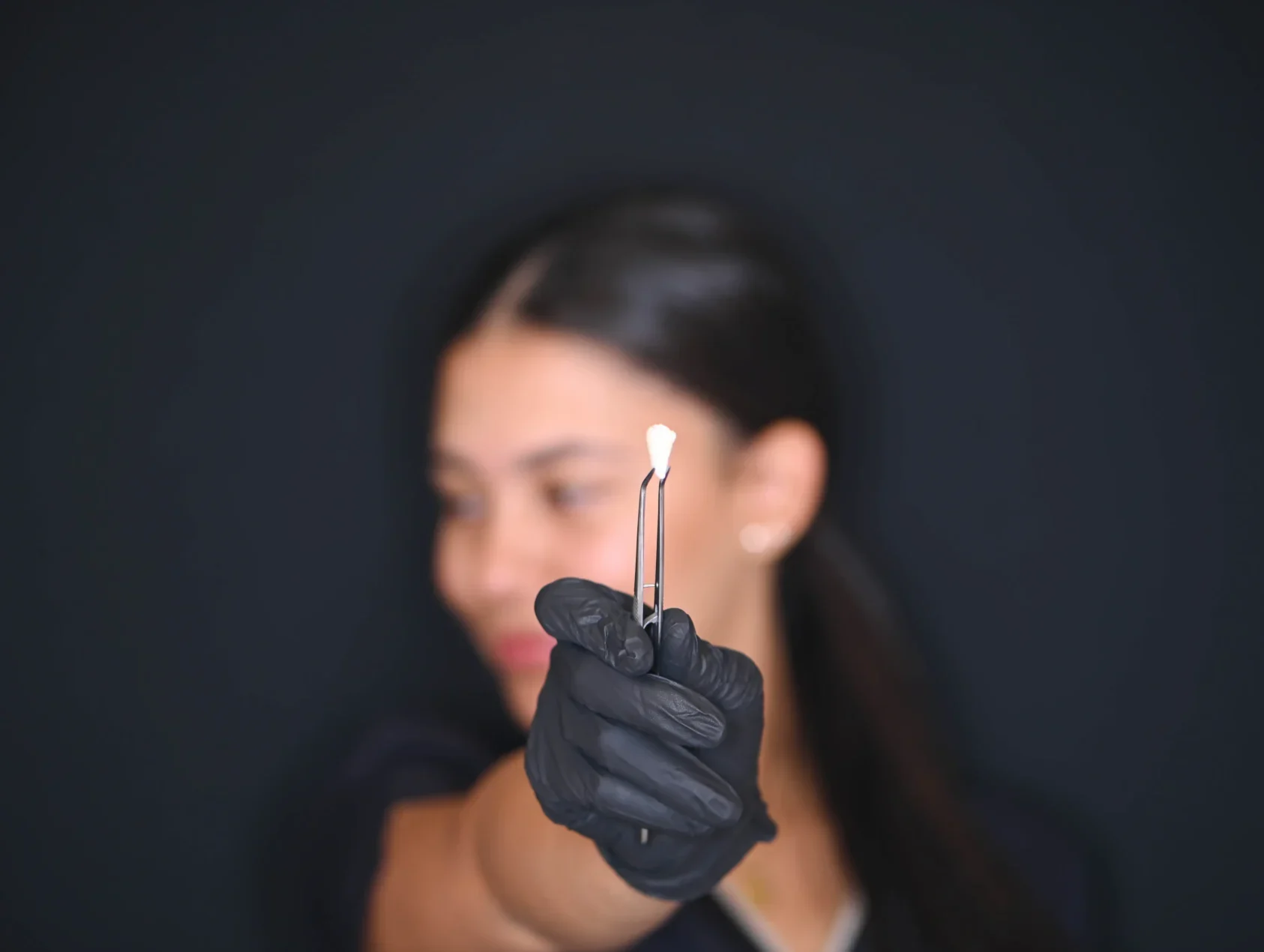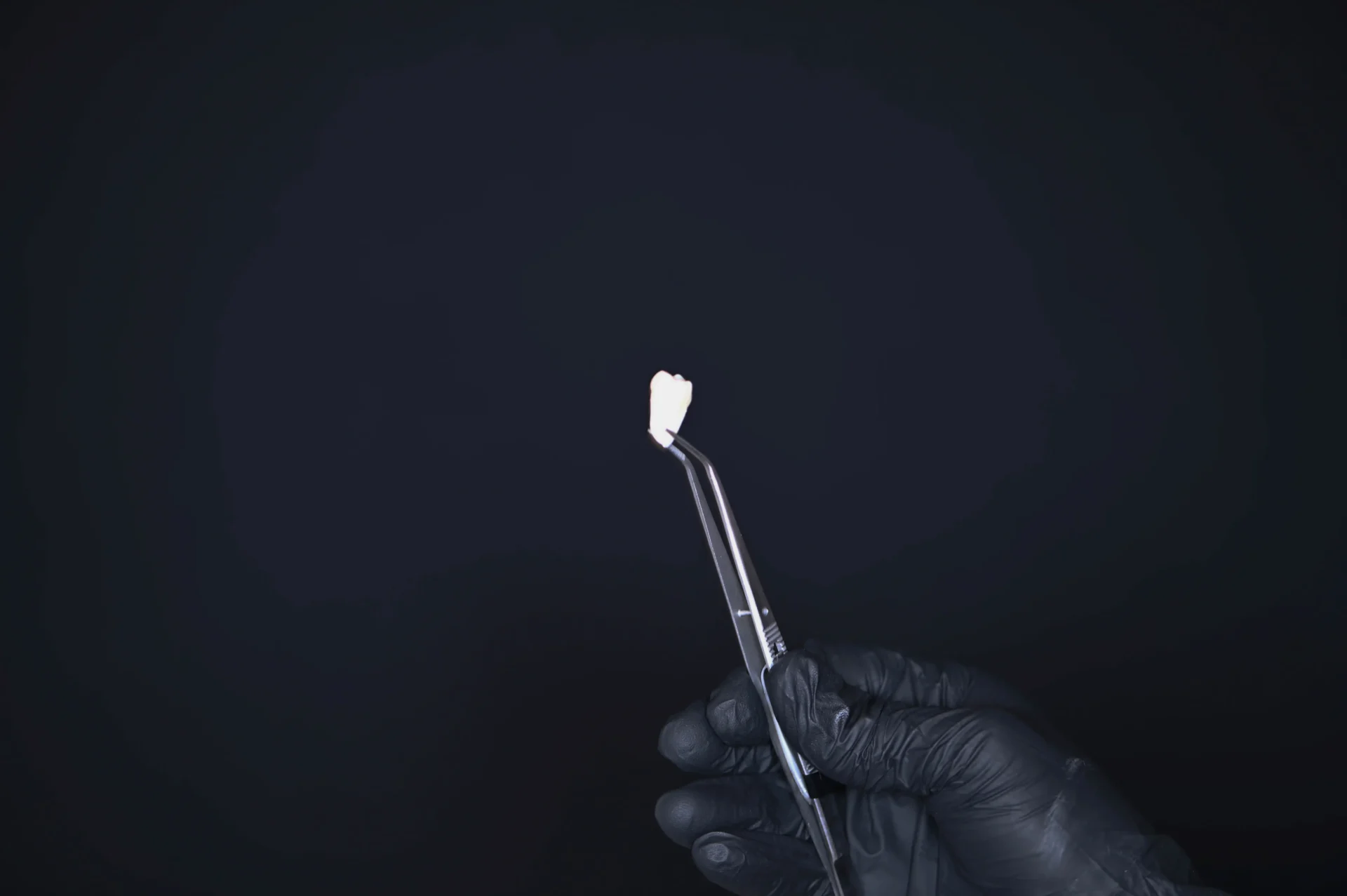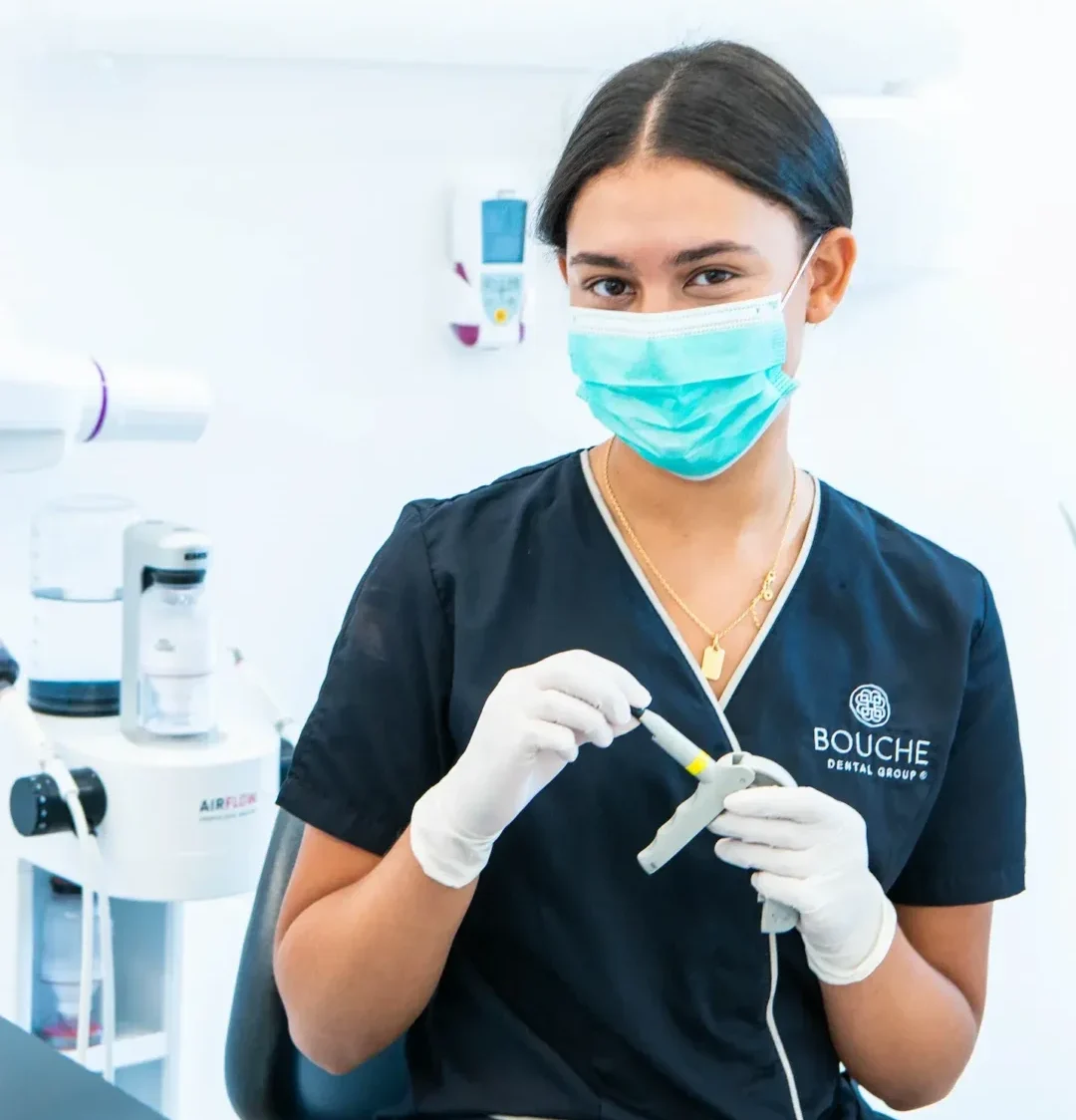Wisdom teeth extraction is one of the most common procedures in dentistry, particularly among young adults. Although not everyone needs to have their wisdom teeth removed, many people end up experiencing complications that make this intervention necessary. In this article, we’ll explore what wisdom teeth extraction involves, when it’s indicated, how it’s performed, and the care required after the procedure.
Bouche Dental Group is a network that works with a range of specialised dentists in Luxembourg, helping patients connect with the best professionals and ensuring that each case receives the appropriate care.

What are wisdom teeth?
Wisdom teeth, also known as third molars, are the last teeth to erupt in the oral cavity, usually between the ages of 17 and 25. Each person can have up to four wisdom teeth — one in each corner of the mouth. These teeth evolved to help with chewing tougher foods, but as human diets changed over time, they have become less necessary.
For some people, wisdom teeth erupt normally without causing any issues. However, in many cases, a lack of space in the dental arch leads to complications.

5 reasons why wisdom teeth extraction may be necessary?
Wisdom teeth extraction is indicated in the following situations:
- Impacted teeth: When wisdom teeth are unable to erupt fully and remain trapped in the bone or gum, causing pain and infections.
- Incorrect position: Wisdom teeth that grow crooked or at an angle, pressing against neighbouring teeth and leading to misalignment.
- Tooth decay and gum disease: Due to their hard-to-reach location, wisdom teeth are more prone to plaque build-up, which can result in cavities or gum inflammation.
- Cysts or tumours: Although rare, impacted wisdom teeth may be associated with the development of cysts or tumours, potentially damaging surrounding bone structures.
- Dental overcrowding: When the eruption of wisdom teeth causes excessive pressure on adjacent teeth, leading to wear or misalignment.

How is wisdom teeth extraction performed?
The procedure for extracting wisdom teeth can vary depending on the complexity of the case. However, it generally involves the following steps:
- Initial assessment: The dentist performs a clinical and radiographic examination to assess the position of the wisdom teeth and to plan the procedure.
- Local anaesthesia: Local anaesthesia is administered to ensure the procedure is pain-free. In more complex cases, conscious sedation may be used.
- Incision and access to the tooth: If the tooth is impacted, it may be necessary to make an incision in the gum and remove part of the surrounding bone.
- Tooth removal: The tooth is carefully extracted, and may be divided into sections to ease removal.
- Suturing: Stitches may be placed to help with healing, if necessary.
- Immediate post-operative care: The dentist provides detailed instructions to ensure proper recovery.
Aftercare following wisdom teeth extraction
After the extraction, it is essential to follow certain care instructions to ensure a smooth recovery:
- Avoid vigorous rinsing or spitting during the first 24 hours.
- Apply an ice pack to the face during the initial hours to reduce swelling.
- Avoid hot or hard foods, opting for soft and cold foods in the first few days.
- Do not smoke or consume alcohol during the healing period.
- Maintain proper oral hygiene, avoiding brushing directly over the extraction site.
- Take any prescribed medication as instructed by the dentist.
- Avoid strenuous physical activity in the first few days post-surgery.
- Sleep with your head slightly elevated to help reduce swelling.
Potential risks and complications
Although it is a safe procedure, wisdom teeth extraction can involve some risks, such as:
- Infection: This may occur if post-operative care is not properly followed.
- Excessive bleeding: A slight bleed is normal in the first few hours, but prolonged bleeding should be evaluated by a dentist.
- Nerve injury: Particularly when lower wisdom teeth are close to the inferior alveolar nerve, which can cause temporary or, in rare cases, permanent numbness.
- Dry socket: A painful condition where the blood clot protecting the bone is dislodged or dissolves too early.
- Difficulty opening the mouth: Due to swelling or muscle inflammation.
Following the dentist’s recommendations is essential to minimise these risks and ensure a smooth recovery.
Conclusion
Wisdom teeth extraction is a common procedure and, in most cases, necessary to prevent future problems. It’s important to undergo an assessment by a specialised dentist to determine whether extraction is needed and to identify the best approach for your specific case.
Bouche Dental Group works with a network of qualified professionals in Luxembourg, ensuring appropriate treatment is carried out by experienced specialists with access to the best resources available.
If you are considering wisdom teeth extraction or are experiencing discomfort related to these teeth, book an appointment with a specialised professional to receive the most appropriate diagnosis and treatment for your case.


